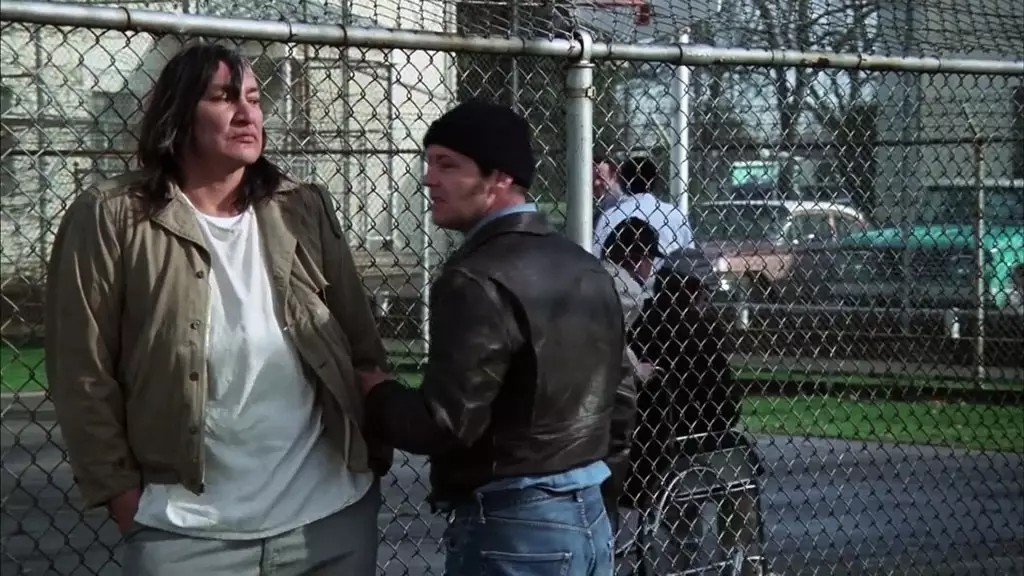The anticipation surrounding the upcoming adaptation of *One Flew Over the Cuckoo’s Nest* for television highlights an intriguing truth: some stories transcend their original mediums. This film, a groundbreaking cinematic milestone, has cemented its place in cultural history—not only because of its compelling narrative but also due to its daring critique of authority, conformity, and institutional power. Revisiting such a revered story through a new lens is not merely an act of nostalgia; it’s an opportunity to re-engage with its core themes in a way that resonates with contemporary audiences.
This project’s evolution signifies more than just another reboot; it represents a deliberate effort to deepen storytelling. By choosing to tell the tale from Chief Bromden’s perspective, the creators are promising a nuanced, immersive exploration of the story’s emotional landscape. Unlike the 1975 film, which focused heavily on Jack Nicholson’s McMurphy, this series aims to honor the novel’s original point of view, giving voice to the silent powerhouse at its heart. If executed conscientiously, this adaptation could not only pay homage to the source material but also elevate the conversation around mental health, rebellion, and resistance in modern society.
Challenging the Limits of Traditional TV Narratives
Television, with its capacity for serialized storytelling, is uniquely suited to explore complex characters and layered conflicts over extended periods. The decision to focus on Chief Bromden—an enigmatic figure whose narrative perspective remains largely unexplored in mainstream adaptations—is a bold move that could revolutionize how mental health and institutional critique are portrayed on screen. This shift opens up new opportunities for character development, emotional depth, and social commentary, all within a format that nurtures patience and nuanced storytelling.
Moreover, this approach signifies a broader shift in the expectations audiences have of television. Viewers are increasingly craving authentic, thought-provoking content that challenges societal norms and cultural prejudices. A series that delves into Bromden’s inner world, his perceptions, and his journey from silence to voice, could spark vital conversations about marginalized groups and the power of storytelling to foster empathy.
The Risks and Rewards of Reimagining a Classic
While the potential of a *Cuckoo’s Nest* series is undeniable, it is fraught with risks. Notably, the legacy of the original film remains so powerful that any iteration faces high expectations and severe scrutiny. The challenge lies in honoring the profound message of the source material without falling into the trap of mere replication or superficial updates.
The producer’s skepticism about remaking films like *Psycho* echoes a broader concern: that the essence of what made these stories resonate could be diluted in the process. Yet, the series format provides a unique platform to explore themes at a much deeper level. Unlike a two-hour movie, a series can dissect the slow-building resistance, the internal struggles of patients, and the subtle nuances of power dynamics within the mental health system.
Achieving this demands inventive storytelling, sensitive character arcs, and a nuanced visual and auditory aesthetic that captures the urgency and complexity of Bromden’s perspective. If done thoughtfully, this adaptation could set a new standard for how classic stories are revisited in the age of streaming. It’s an opportunity to deliver not just a mirror of the original but a fresh, compelling narrative that dialogues with current societal issues—a task that, while challenging, is perhaps necessary for meaningful artistic progression.
Beyond Nostalgia: Recasting What it Means to Rebel
What makes *One Flew Over the Cuckoo’s Nest* perennial isn’t simply its plot or characters; it’s its defiant voice against oppressive systems. Reimagining it as a series from Chief Bromden’s point of view amplifies this rebellious spirit, focusing on the silent, often overlooked figures who challenge authority from within. It’s a powerful reminder that resistance does not always announce itself loudly; sometimes, it whispers through acts of quiet defiance and resilience.
This new adaptation can reframe the narrative for a modern era desperately in need of stories about empowerment, identity, and liberation. It forces us to reevaluate how we understand mental health, institutional control, and the true meaning of freedom. Critics may remain skeptical, but for those willing to engage with its depth, this series could be a landmark achievement—transforming a cinematic legend into a living, breathing exploration of human spirit and societal justice.
In embracing this challenge, the creators not only pay tribute to a revolutionary story but also affirm the enduring relevance of its themes. They dare to ask: how far have we come since the days of McMurphy? And, more importantly, how do we continue to push for change in our own institutions? A well-crafted series rooted in Chief Bromden’s perspective could be a crucial step forward—a daring, potent renewal of a story that still has much to teach us.
